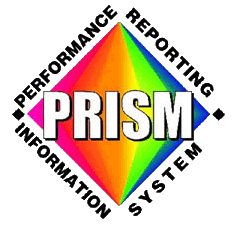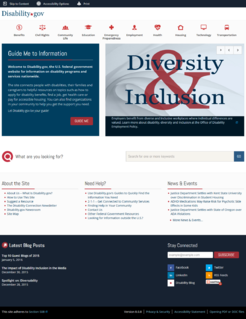The Job Training Partnership Act of 1982 was a United States federal law passed October 13, 1982, by Congress with regulations promulgated by the United States Department of Labor during the Ronald Reagan administration. The law was the successor to the previous federal job training legislation, the Comprehensive Employment and Training Act (CETA). It was repealed by the Workforce Investment Act of 1998 during the administration of President Bill Clinton.
The Workforce Investment Act of 1998 was a United States federal law that was repealed and replaced by the 2014 Workforce Innovation and Opportunity Act.

The Employment and Training Administration (ETA) is part of the U.S. Department of Labor. Its mission is to provide training, employment, labor market information, and income maintenance services. ETA administers federal government job training and worker dislocation programs, federal grants to states for public employment service programs, and unemployment insurance benefits. These services are primarily provided through state and local workforce development systems.
Pennsylvania CareerLink is a collaborative project between multiple agencies to provide career services to Pennsylvania employers, potential employees, and others.

The Oklahoma Employment Security Commission (OESC) is an independent agency of the state of Oklahoma responsible for providing employment services to the citizens of Oklahoma. The Commission is part of a national network of employment service agencies and is funded by money from the United States Department of Labor. The Commission is also responsible for administering the Workforce Investment Act of 1998 on behalf of the state.

The Performance Reporting and Information System (PRISM) is a data system which collects and disseminates performance measurement data for individuals receiving workforce services from the U.S. state of Oregon government. To help inform decision-making of educators, administrators, and policy makers for program and service delivery, PRISM produces information about the effectiveness of workforce system programs and services. A suite of user-friendly reporting tools provides easy access for anyone who is interested in learning about the results that Oregon's workforce system produces for its customers.
The Rehabilitation Services Administration (RSA) is a federal agency under the United States Department of Education, Office of Special Education and Rehabilitative Services, and is headquartered within the Department of Education in Washington, D.C. It was established to administer portions of the Rehabilitation Act of 1973. Its mission is to provide leadership and resources to assist state and other agencies in providing vocational rehabilitation (VR) and other services to individuals with disabilities to maximize their employment, independence and integration into the community and the competitive labor market.

In California, the Employment Development Department (EDD) is a department of government that provides a variety of services to businesses, workers, and job seekers. The EDD administers several multi-billion dollar benefit programs including the Unemployment Insurance (UI), Disability Insurance (DI), and Paid Family Leave (PFL) programs that provide financial stability to workers and their communities. The Department also provides critical employment service programs to Californians, collect the state's labor market information and employment data, and serve as one of the nation's largest tax agencies through the collection of payroll taxes.
Career Pathways is a workforce development strategy used in the United States to support workers’ transitions from education into and through the workforce. This strategy has been adopted at the federal, state and local levels in order to increase education, training and learning opportunities for America’s current and emerging workforce.
The United States Social Security Administration's Ticket to Work and Self-Sufficiency Program is the centerpiece of the Ticket to Work and Work Incentives Improvement Act of 1999.
The Maryland Department of Labor is a government agency in the U.S. state of Maryland. The state changed the agency's name from "Department of Labor, Licensing, and Regulation" to "Maryland Department of Labor" in 2019. The department is headquartered at 500 North Calvert Street in Baltimore.

Disability.gov was a United States Government inter-agency web portal that provided access to comprehensive information about disability-related programs and services from 2002-2016. The site contained thousands of trusted resources, updated daily, from the federal government, educational institutions, non-profit organizations and state and local governments.
The Minnesota Department of Employment and Economic Development (DEED) is the State of Minnesota’s principal economic development agency. Its mission includes supporting the economic success of individuals, businesses, and communities by improving opportunities for growth.

The Texas Workforce Commission is a governmental agency in the U.S. state of Texas that provides unemployment benefits and services related to employment to eligible individuals and businesses.
The Maryland Department of Commerce is a government agency in the state of Maryland in the United States. Although its roots began in 1884, the department came to be recognized as the Department of Commerce in 2015.

The Georgia Department of Labor is an administrative agency of the U.S. state of Georgia. With approximately 4,000 employees in 2008, it provides services to the state's current and emerging workforce.
The Massachusetts Executive Office of Labor and Workforce Development (EOLWD) is a Cabinet level agency under the Governor of Massachusetts. EOLWD is responsible for enforcing the Commonwealth's labor laws and for providing workforce training to citizens. EOLWD is also responsible for administering Massachusetts' workers' compensation laws, enforcing laws governing collective bargaining, and for providing unemployment benefits to those in need.
The Wisconsin Department of Workforce Development (DWD) is an agency of the Wisconsin state government responsible for providing services to Wisconsin workers, employers, and job-seekers to meet Wisconsin's workforce needs. To effect its mission, the Department administers unemployment benefits and workers' compensation programs for the state of Wisconsin; ensures compliance with state laws on wages and discrimination; provides job resources, training, and employment assistance for job-seekers; and engages with employers to help them find and maintain adequate staffing for their businesses.

The Workforce Innovation and Opportunity Act (WIOA) is a United States public law that replaced the previous Workforce Investment Act of 1998 (WIA) as the primary federal workforce development legislation to bring about increased coordination among federal workforce development and related programs.








